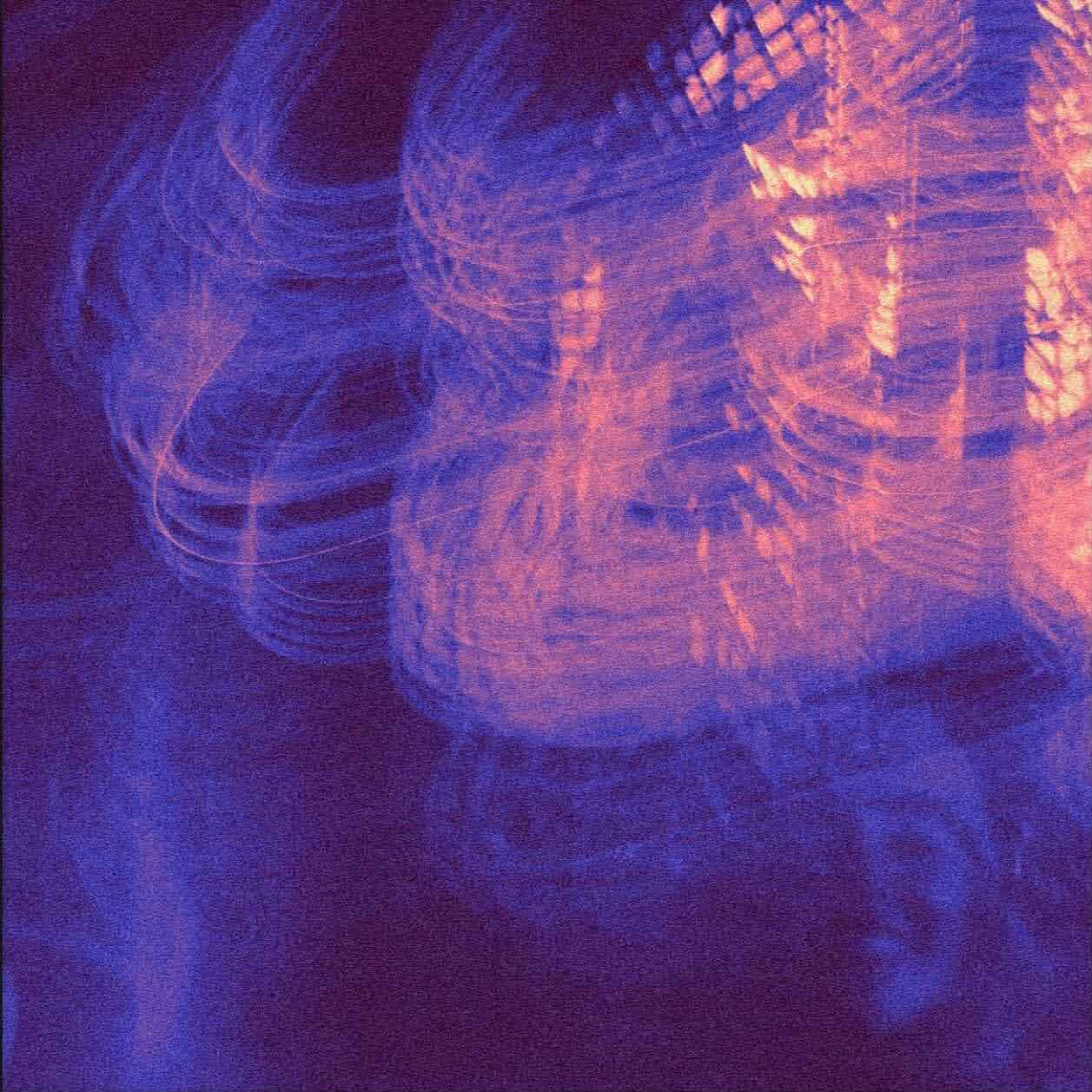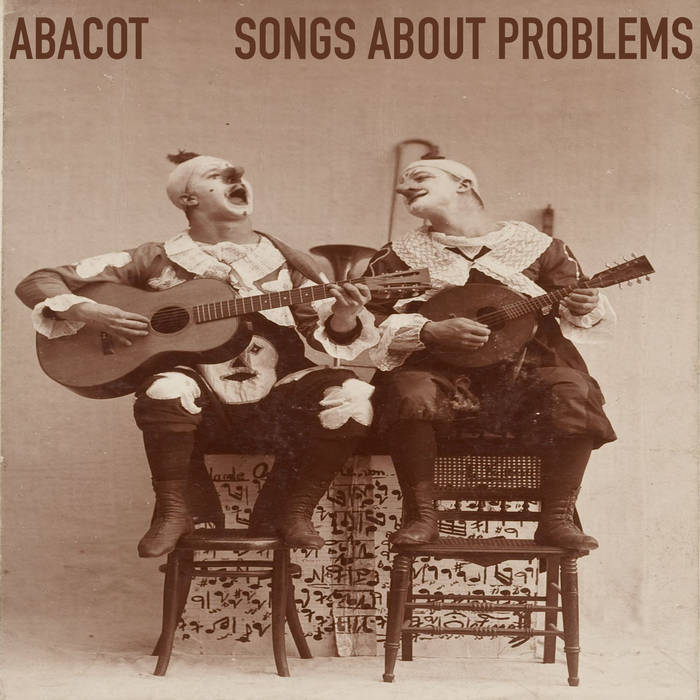Colin Miller – Losin' | Album Review
/Mtn Laurel Recording Co.
The first time I ever saw Colin Miller, he was sitting on a riding mower, kind of like a lawn chair and kind of like a throne. This wasn’t the first time I had heard his name, though. No, the first time I ever heard Colin Miller’s name was when he was introduced during the live rendition of “You Are Every Girl To Me” on MJ Lenderman’s album And the Wind (Live and Loose!). Toward the end of the Jackass-indebted love song, the group launches into an instrumental jam that allows Jake Lenderman to do a roll call of his band, the titular Wind. Lenderman’s voice kind of lulls as he calls out Miller, looping around the L’s and playfully drawing out the R in his drummer’s last name. It wasn’t until Zach Romeo’s documentary Rat Bastards of Haw Creek that I finally put a face to the name.
Rat Bastards of Haw Creek is a film about the rock band Wednesday, but it’s also secretly a preservative study of Haw Creek, the pastoral slice of North Carolina countryside that several members of Wednesday lived and recorded music on before they were evicted this past year. In his mini-doc, Romeo depicts this home through alternating shots of broken-down trucks, abandoned grills, worn-down sheds covered in ivy, and lush fields dotted with low white houses that blend into the landscape. With this footage and the accompanying interviews about living there, Romeo created a poignant portrait of a place that no longer exists.
We may only be halfway through the decade, but it already feels indisputable that alternative country is the sound of 2020’s indie, with the twinkle of pedal steel becoming what feels like a requirement for rock credibility these days. There are lots of intangibles in this Country takeover (which I wrote about in the second issue of Portable Model), but one tangible reason for this sound is Colin Miller, who has been at the periphery of this scene working as collaborator, creator, and contributor to some of the most buzzed-about records of the past few years.
Tucked away in the idyllic greenery of Haw Creek, several of the biggest alt-country debuts of the past decade were produced in those low white houses with Miller’s support. Indigo De Souza’s, I Love My Mom, Wednesday’s I Was Trying to Describe You to Someone, and MJ Lenderman’s self-titled album were all recorded in the walls of Miller’s home. This isn’t including the countless other artists that Miller was producing up until his last day on the property. This also isn't counting the number of songs simply inspired by living in Haw Creek, depicting the lives of the people who populated this space.
These alt-country stars all ended up here because Miller had inadvertently built a thriving artistic community in East Asheville thanks to Gary King, the beloved owner of the Haw Creek property. King’s low rent, affable personality, and familial-like support for these artists resulted in the creation of entire songs, albums, and discographies. In the words of Miller, “Every part of the music process benefits from livin’ in a place like this.”
Photo by Charlie Boss
But he doesn’t live there anymore. In 2022, after years as the de facto caretaker of Gary King and his land, watching NASCAR with him and mowing his lawn, King passed away, and his land was sold. In the years between his death and the official sale of the property, Miller tasked himself with maintaining Haw Creek’s magic in King’s absence, even buying Powerball tickets and scratch-offs with the hopes of winning enough to keep his home.
This is all captured on Colin Miller's sun-faded sophomore album, Losin', both explicitly and implicitly. While some songs call directly to distinct moments, open in their mourning, the whole album is tinged with melancholia as Miller stubbornly pushes through his permanently changed life. The fuzzy melodies and ambient soundscapes of the album, combined with Miller’s unflinching misery, create a lightly haunted feeling that envelops the record, not in a literal ghostly sense, but rather in the way that life is constantly permeated by the presence of others, and once they are gone, the unrelenting memories remain. Through Miller’s signature North Carolina twang, Losin' is an album that is dogged in its sadness and stubborn in its acceptance of change.
“Birdhouse” kicks the record off with a woozy bent guitar lick and Miller laying out the pragmatic lyric, "If I stay here, I will die in silence here." Not exactly the typical place for an album about grief to start, but this is clearly the rumination of someone who has been dealing with grief and its effects for an extended period and is ready for tough change. This is the driving kinetic energy of the album: the want and need to live with loss, not disappear in it. Musically, there’s a porch-like quality to this song, as if its bright, bittersweet chords were first strummed while facing the sun despite the heartbroken words sung against it. Miller’s grief is lived-in and constant, palpable even on the best summer days.
There’s a hypnotic nature to Miller’s sound, and “4 Wheeler,” which starts with a line about robotripping, feels like hazy dreams appearing and disappearing in a thick country fog. Miller suddenly turns the blame on himself, repeating the refrain, “I can’t get to you.” In the final tragic moments of the track, an out-of-tune woodwind winds its way through Miller’s ambient sound and desperate repetition. The album is full of moments like this: a stray guitar pluck, a small riff on the keys, a faraway horn, soaring and sinking pedal steel. Behind these instruments are Miller’s friends, Jake Lenderman, who took over Miller’s usual space behind the drum kit, Xandy Chelmis, alt-country’s most prolific pedal steel player, and Ethan Baechtold, who holds it all together with his bass and keys. After all, his friends were inspired by Haw Creek and mourn Gary King, too.
Miller’s lyrics are sparsely placed throughout his songs, and the words themselves are minimal, focused on capturing a specific feeling rather than recalling an autobiographical scene. In “Porchlight,” Miller makes sense of the collapse of a relationship. Lyrics like the lamenting “I found a stranger’s boots in the living room” and the helplessly romantic “Darlin, you know you’re still my number one tube top angel” evoke a heartbroken strand of loneliness. While the lyrics are minimal, the sound is not – Miller traded his distortion at the door for a looser instrumentation. You can almost hear the cicadas chirping in the back of the track.
Cars, both driving them and watching them rust, are a constant reference for Miller throughout Losin', with most songs referencing different vehicles’ comfort, decay, or association with loved ones. The lead single, “Cadillac,” is the most straightforward in its metaphor, named after King’s favorite kind of car. This song was reviewed for Swim Into The Sound earlier in this album cycle, and in his review, Taylor Grimes notes the honest depiction Miller recalls of King, naming oxygen tanks, lazy eyes, and fake teeth. This is an incredibly vivid description woven over pedal steel.
Despite the clear grief and loss on display, the song floats by as an easy listen, light and breezy, the perfect soundtrack as the Carolinas warm up for the spring. By the end of the track, Miller lays out the stakes in the most plainspoken of terms: “It’s a good day at the wreck yard / It’s a bad day for my heart.”
If the other songs were Miller imagining cars that can’t move fast enough, “Hasbeen” is Miller with his pedal to the metal. Clocking in at under two minutes, this is the fastest song on Losin', and it zips past the sun-bleached tracklist, exhaust left in its wake. The track gains momentum as it powers on, charged by Lenderman’s kick drum. I imagine the greenery of the North Carolina hills sweeping past a car window. Lyrically, Miller likens himself to a rusting car or an aging athlete, with the capacity to rebuild with help from others; it’s wavering but hopeful. However, like a deer had leapt into the road, the whole song comes to a screeching halt as Miller repeats and pleads, “Was that you?”
These songs feel threadbare, acting as bearers of Miller’s lamentation first, songs second. With needle-thin pedal steel warble wrapping around his words in “I Need a Friend,” Miller suggests, “Maybe I just needed / To be the one / Who leaves first.” His sad assuredness in “Birdhouse” returns in “Little Devil” as he promises, “I ain’t gonna waste your time, you ain’t gonna waste mine.” Sonically, the back half of the album moves away from the more country-flavored sound of the opening tracks and into a twang-tinged distortion.
“Lost Again” begins with a shuffling drum machine loop, building with keys and strings and the pedal steel’s whine before Miller’s distorted voice, almost buried by the instruments, sings, “I don’t need another Christmas morning / I don’t need another birthday picture cake / I just need you here for a second.” It’s in this buzzy orchestration that Miller lets his heart beat out of his chest, his honesty humming alongside the bassline as he tries to bargain for one more glimpse at a friend. While other songs on Losin' depict Miller trying to stitch his grief into his life, “Lost Again” has a distinct air of distress, like an unexpected reminder of who you lost interrupting your day. Miller is raw in his anguish as he begs, “So excuse me for lookin’ like I lost my best friend.” The car imagery returns in crushing lines like, “Just tearin’ up in your muscle car / No one’s watching for my headlights now,” which makes his loneliness palpable. A couple lines later, Miller lays out, “And no Ford Mustang will drag you back to me / Who, yeah, who will dance at my next wedding?” simultaneously accepting loss while dreading imagining a life of joyful moments without a loved one.
The album ends with “Thunder Road,” a song that feels like the pressure that builds under your eyes when you’re on the verge of tears. But the emotion driving those tears changes. The opening lyric, “Singin’ Thunder Road karaoke to a disco ball that won’t spin,” devastated me, yet I crack a smile whenever I hear the start of the next verse: “In a cul-de-sac, with a potato gun / Decapitating dead end signs.” It’s a goofy reminder to let the good wash over you, not just the sadness. Like much of this album, this song roots itself in the present, weary of nostalgia and focusing purely on scenes of memories. “Thunder Road” is lyrically reminiscent of a scrapbook, tasking the music to match Miller’s sun-soaked hope. In the final moments, Lenderman's rhythm fades away, leaving Chelmis’ pedal steel and Baechtold’s keys to sing with Miller’s words and acoustic strumming. The album ends on that same bright bitterness it started on, but it’s different now: better, lighter, and freer with everything out in the open.
Haw Creek, as immortalized in these songs, doesn’t exist anymore, both in the artistic and literal sense. While the land was sold in the years prior, in September 2024, Hurricane Helene’s unprecedented storm surge flooded the mountainous region of North Carolina the neighborhood stood in and quite literally washed the entrance away. Back in his 2023 interview in Rat Bastards of Haw Creek, Miller said, “I think it’s our favorite place in the world,” but in a recent interview, after the landscape was left emotionally and physically unrecognizable, Miller said, “It feels haunted.” While its influence will live on, Losin' is effectively a bookend to the original Haw Creek sound.
In Losin', Colin Miller memorialized a time and place that may not exist anymore but continues to live on in his words and twang. Losin' is not about getting over your grief; it’s about the opposite — living with it, seeing it in the sunrise and the sunset, weaving it into quilts, and smelling it in gasoline. Grief is in everything, like coffee, dentures, Pall Malls, muscle cars, and familiar tree lines, and since it’s so ubiquitous, that means loss happens over and over, again and again, every time a memory strikes. Accepting the circadian rhythm of grief is difficult but necessary. Things will never be the same; how could they? But that’s okay.
Caro Alt (she/her) is from New Orleans, Louisiana, and if she could be anyone in The Simpsons, she would be Milhouse.






